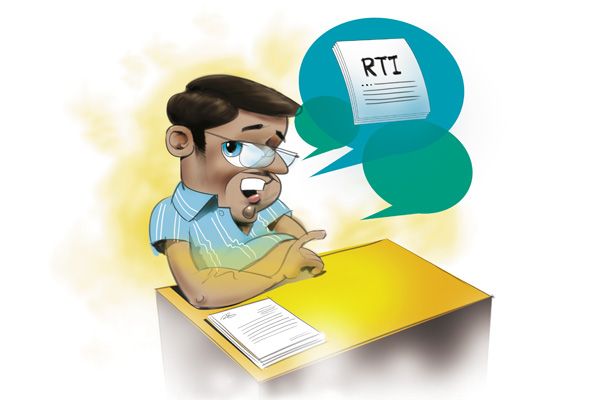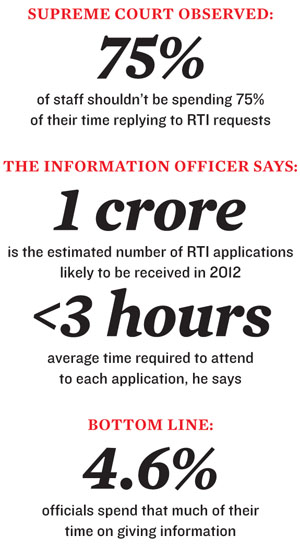Working Class Prepares for Historic General Strike
A K Padmanabhan
THE working
people of our country have by now in full gear to go on a one-day historic
general strike on February 28. All sections of Indian workers, in every corner
of the country, have been preparing for this united action for the last three
months.
HISTORIC OCCASION
The decision to
go on a day’s strike, as is well known, was taken in a national convention of
central trade unions and industrial federations in New Delhi on
September 7, 2011. On that day, all the central trade unions recognised by the
government of India came to a joint platform for the first time in
the history of independent India, to announce a day’s general strike. This
was to press for an agreed charter of demands which covered policy issues
as well as immediate demands of workers, both in the organised and unorganised
sectors.
This call
was fully endorsed by independent federations of those working in various
sectors, like state and central government employees and teachers, bank and
insurance employees, defence production, telecommunication, petroleum and
natural gas, electricity employees etc.
All these
organisations began vigorous preparations during December 2011. Joint meetings
and campaigns began by the end of that month.
Central
leaders of all trade union organisations went to various state centres and also
attended sectorial meetings at the national level in order to prepare for the
strike.
A meeting
at Mumbai on December 30 saw the national and also state level leaders of
central trade unions planning joint initiatives. When approached, leaders of
Bharatiya Kamgar Sena also participated. Various sections of employees and
workers joined the meeting.
STATE
LEVEL CONVENTIONS
The series of
state level conventions began with a successful and massive convention
in Hyderabad on January 5, with more than 2500 representatives from
all over the state attending it.
Dr
Sanjeeva Reddy (president, INTUC), B N Rai (general secretary, BMS), Gurudas
Dasgupta (general secretary, AITUC), Tapan Sen (general secretary, CITU) and
other central leaders along with state leaders addressed the convention.
Leaders of the Telugunadu Trade Union Council (TNTUC) also attended.
January 9 saw
an open air massive convention of all sections of workers in Kolkata, calling
upon the workers of West Bengal to make the proposed strike a big
success. National and state leaders of all central trade unions attended the
convention.
In
Kerala, a massive convention was organised on January 17, in which 18
organisations, central trade unions and various state level organisations, were
represented. Addressing the convention, state leaders of these organisations
approved a detailed programme of campaigns all over the state, and also sectoral
programmes. These included district conventions, dharnas, vehicle jathas etc.
A mass
meeting at Kochi on February 1 was addressed by central leaders
including Gurudas Dasgupta (AITUC), Saji Narayan (BMS), A K Padmanabhan (CITU),
Chandrasekhar (INTUC) and others.
State level
conventions were also held in Haryana, Maharashtra, Orissa, Karnataka,
Rajasthan, Madhya Pradesh, Chhattisgarh, Bihar and Tamilnadu. All
these conventions were well attended, with national and state level trade union
leaders addressing them.
Reports
received from various states showed that district and regional or local level
conventions were also being organised in every part of the country, and that
workers from various unions are participating therein with much enthusiasm.
SECTORAL PREPARATIONS
One important
development is that huge preparations had been going on at sectoral level.
The central
trade unions organised a convention of central public sector unions
at Bangalore on January 13, and it evoked response from unions all
over the country. This was the first time that such a convention was organised
by all central trade unions. Among those who addressed were Dr Sanjeeva Reddy,
B N Rai, Gurudas Dasgupta, Tapan Sen, R A Mittal (HMS) and M Shanmugan (LPF),
apart from leaders of the Joint Action Forum of Bangalore PSUs and Coordination
Committee of Hyderabad PSUs.
The convention
adopted a declaration, calling for massive participation of PSU workers in the
strike. It was circulated among PSU workers in large numbers.
This successful
initiative prompted various unions in PSUs, like coal, petroleum and natural
gas, NTPC, powergrid, telecom, etc, to come together and issue joint appeals.
These were signed by national leaders of industrial federations or
representatives in the national level negotiating bodies.
A national
convention of workers of oil and natural gas PSUs was held
in Delhi on February 4. It was organised by All India Petroleum
Workers Federation, National Federation of Petroleum Workers, and Petroleum and
Gas Workers Federation of India. These unions served a joint strike notice on
the managements of all oil and gas PSUs. Countrywide campaigns were planned.
All the
five federations in the port and dock sector, including those led by the HMS,
CITU, INTUC and AITUC, issued a joint statement. Joint preparations for the
success of the February 28 strike followed.
Leaders of
national federations in public as well as private road transport sectors met
at New Delhi and issued a joint statement. Regional and zonal level
preparations are also made.
In the defence
production sector, AIDEF, INTUC and BMS affiliated federations were jointly
organising campaigns all over the country for the success of the strike.
In the
telecom sector, all the workers’ and employees’ unions including the BSNLEU,
NFTE and FNTO came together to plan countrywide campaigns to make the strike
complete.
Sectoral
conventions and meetings were also held in various states. In Kerala, a massive
convention of unions in central and state PSUs was held at Kochi on
February 2, where state level campaigns were planned. Similar campaigns were
planned in other states also.
As has
been the practice, all unions in the banking and insurance sector will
participate in the strike en masse. Countrywide campaign meetings were held in
these sectors.
Held at Hissar
in December, the national conference of the All India State Government
Employees’ Federation, the largest organisation of state government employees
in the country, unanimously decided to participate in the strike. Its
leadership at all levels has been making all necessary preparations for a
successful strike.
The Confederation of Central Government Employees
and Workers, representing all sections of central government employees
including postal employees, has also called for turning the strike into a
massive action of protest. The confederation leadership chalked out a
countrywide tour programme for the campaign to ensure that the message and
demands of the strike were taken down to the central government employees at
all levels.
The recent united struggle of postal employees
against the threat of closure of RMS and post offices in the country achieved
success when the government was forced to give a written assurance not to close
any office for the next three years at least, due to which the proposed
indefinite strike was withdrawn. Now the postal employees’ unions are fully
involved in preparations for the success of the February 28 all-India general
strike. Leaderships of the NFPE, FNPO and GDS unions jointly went on a
countrywide campaign among the postal employees to ensure complete strike in
the postal department.
A meeting of
unions in the Southern Railway, including the DREU (CITU), SRES (INTUC), DRKS
(BMS), AISMA, AILRSA, SRLU, SREF and others, conducted a campaign in the
divisional headquarters in the zone and also among the passengers to explain
the demands. Demonstrations will be held in all the divisional centres on
February 28, and all workers will wear badges on the day.
Apart from
posters, millions of handbills have already been circulated and more are being
brought out. Wall writings are going on in various parts of the country..
Thus, with
reports still pouring in from different states about the massive ongoing
preparations for the strike, one may be pretty sure that the strike on February
28 will see an unprecedented participation, that men and women workers in the
country will make it a historic one in all aspects. Firmly united, the working
class is on the move and will be out in the streets to challenge the policies
of the ruling classes.







